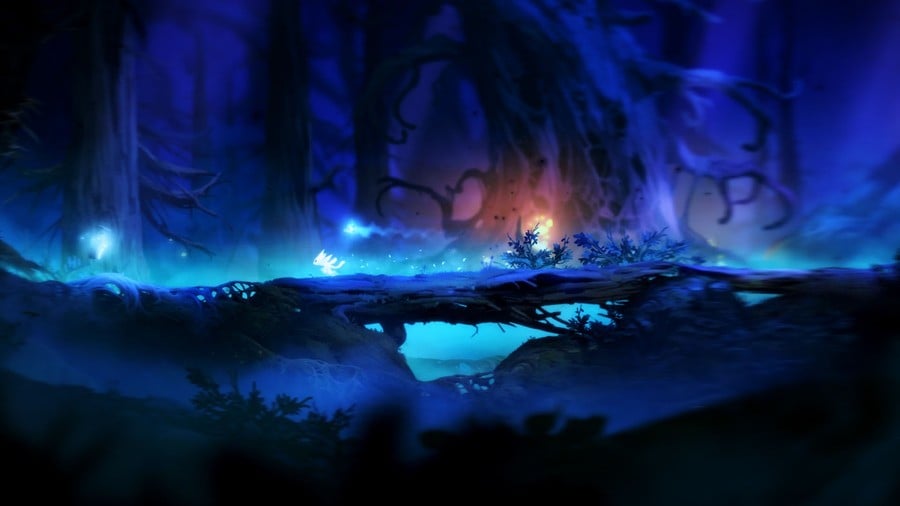
Back in the Xbox 360's heyday, Microsoft's Xbox Live Arcade was a stellar way to bring new titles to gamers. A platform within a platform, it appeared to have the full backing of the console manufacturer, with regular arcade-focused promotions and a dedicated area on the dashboard for people to find out about what was available.
When a new game was set for release, the press would generally know about it in advance. We could usually put together a review in time for launch to help to inform our readership about the new game or, at the very least, have enough information on it to ensure that we could break down the facts in a news piece to help gamers at least have some idea of what the game was about. Microsoft even had a "shadow" Xbox Live service called Partner.net that allowed developers and the press to see and play what was coming down the pike for Xbox Live Arcade before it was released, via a "debug" Xbox 360 console.
Plus, you could load up the store on a Wednesday and see the new releases that were available. Every Wednesday. Never any other day of the week. Wednesday was Xbox Live Arcade Release Day, and that worked.
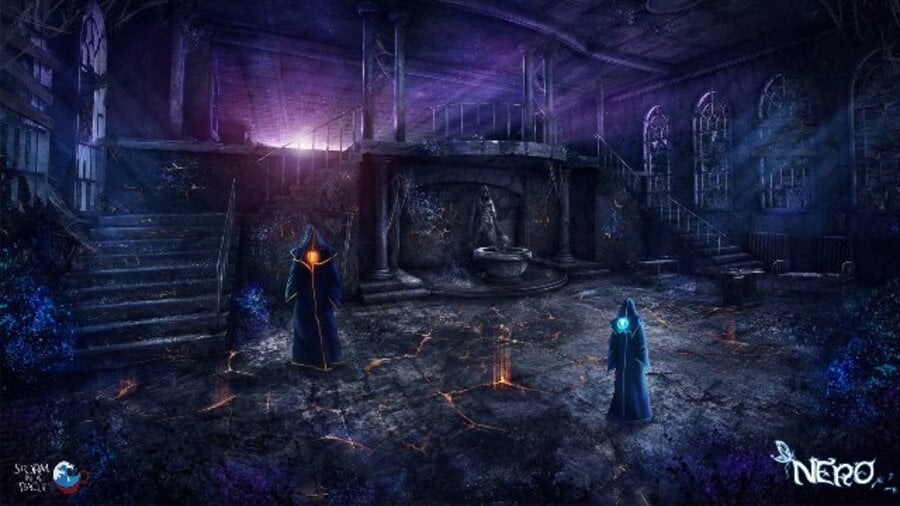
The Retail Issue
With the dawning of Xbox One, that all went out of the window. All games are treated the same way, as is Microsoft's want. Indie titles get to fight it out with full price releases in the Xbox One Games Store. On the dashboard, there's space for four entries in the "New Release" area (unless you load the full list) and if an AAA title has just been launched, there's even less room for indies. At the time of writing, Toro, Nero, and Lifeless Planet are listed, alongside the Shadow of Mordor: Game of The Year Edition re-release. Schrödinger's Cat and the Raiders of the Lost Quark, which has been available for two whole days, is nowhere to be seen.
If a big-name game shows up with three different purchase options, one of the two indie titles that may be released in the same week won't so much as get listed in this section at all. Instead, it'll be relegated to the full listings page to battle for position on a screen that contains 11 other titles. That's got to suck out loud if you're a developer who has put your heart and soul into making a game.
The "Coming Soon" area of the store is pretty much entirely reserved for big-name retail releases from big-name publishers. 15 games are listed. Call of Duty: Black Ops III is listed three times. Devil May Cry 4 Special Edition is listed twice, as is The Witcher 3: Wild Hunt. Even LEGO Dimensions (which you'll need to buy physically as it uses a peripheral) is there. However, the only indie title to make the cut is Velocity 2X which has no release date as yet. Indie titles that are coming out next week aren't even listed, but games that are seven months away are.
A quick sojourn over to the "Recommended for You" section – a place that could serve to promote indie games incredibly well – uses 90% of the screen to show me just three titles. I've got recommendations for Transformers: Rise of The Dark Spark (a year-old game, recommended to me based on the fact I've played Crimson Dragon and the Destiny Beta) and Threes! (somewhat ludicrously based on me playing Wolfenstein: The New Order and D4) and exasperatingly, the great Ori and The Blind Forest, which I already own.
It's hardly a well thought-out system.
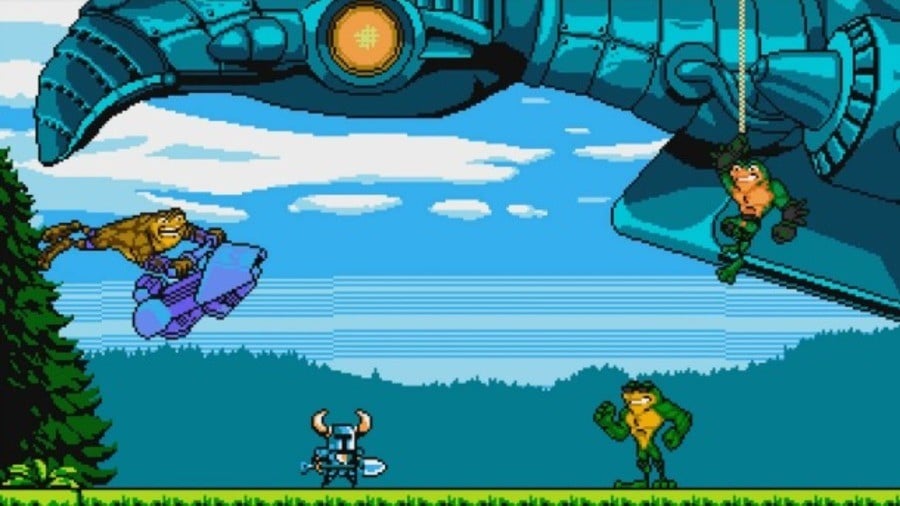
The Press Problem
So, the onus shifts, somewhat. The gaming press becomes more responsible for informing gamers about new indie titles. That's just fine with me, for obvious reasons. The only problem with it though is that most of the time, we have absolutely no idea when new games are coming out either.
A couple of weeks ago, I received an email on a Wednesday containing a review code for a new game that was coming out on the Friday. As far as we all were concerned here at Pure Xbox, the game hadn't even been given a release date. The developer's site, their Facebook, and their Twitter accounts hadn't mentioned that it was hitting the store. Given that we had a total of 30 hours between receiving the code and the time the game would be available to buy, our review wasn't close to being ready. Mainly, this is because putting together accurate and informative reviews isn't something you can do just by clicking your fingers, especially not when you're covering game news for every other title on the platform at the same time.
The exact same thing has happened this week. This time though, the game hadn't even been confirmed as launching on Xbox One. In fact, the only information we could find about the game is that – apparently due to the much maligned and very much misunderstood "parity clause" – it definitely WOULD NOT be released on Xbox One. Again, the publisher doesn't mention it on their site or their social media accounts. For the record, on the day AFTER the day we were told it would be launching, it still isn't available to purchase. We're sure it'll turn up any minute now. Maybe. But it might be delayed until next week. Or Sunday. Or maybe it's been cancelled altogether. Who knows?
Or how about a very niche title such as Toro? At 23:55, I wrote up a story about how the bullfighting simulator was coming to Xbox One, as it had appeared in the database of the European age rating board PEGI an hour or two before. It was available to purchase five minutes later. The developer's own site still lists the game as being released in "April-May 2015."
Good luck finding a review of that one for a few days.
I'll take a brief pause here to say that I'm not complaining about receiving games for review a bit later than I'd like. Rather, I'm voicing frustrations at limitations being put in place that prevent my team and I from presenting information that could help promote indie titles and their entire concept more effectively. There are still a lot of people out there – some have voiced the opinion on this very site, others have taken to Reddit, Twitter, NeoGAF and the like - who feel that the majority of independently published games are nothing but rehashes of SNES games. They are absolutely entitled to that or any other opinion and I respect that, but without information those assumptions will continue to exist as high-quality titles are just casually dropped onto the store and left to fight for themselves.
Gamers will miss out on great games (consequently causing them to also run all over the Internet claiming that no good games are available) and developers will miss out on revenue. From a purely selfish standpoint, we miss out on the traffic that putting together articles about upcoming games and producing timely reviews brings us.
In short, nobody wins.
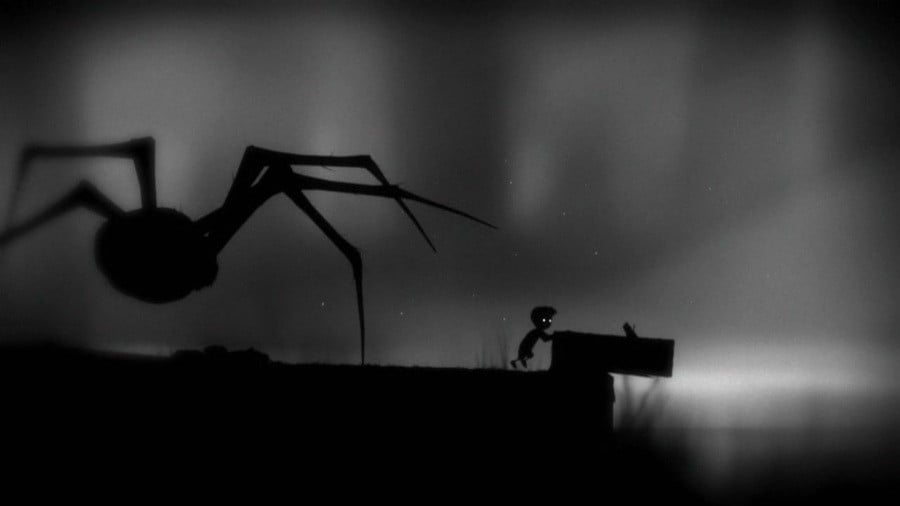
What Microsoft Needs to Do
The simple fact is that Microsoft needs to do better at showcasing indie games on the Xbox One dashboard. We're not talking about the odd advertisement box being added in random places, either.
Not only that, but there needs to be some sort of system in place for the press that gives them information about the release status of titles, so we can pass that information on to gamers as best as we can. The system of a game passing certification and then being thrown onto the store within the week just isn't helping anyone.
Honestly, right now, there is nothing.
We follow a million different official Microsoft Twitter and Facebook accounts ranging from Xbox UK to Xbox Finland, all the way through to the official ID@Xbox account, in order to piece together information. We keep track of hundreds of developers and publishers, garnering tidbits of information from them, too. But our contacts at Microsoft simply don't have the information to pass on.
That's sort of ridiculous, especially given that as we say, even though these are indie titles, Microsoft certifies every single one of them to ensure that they're technically fit for release. You can't release a title without certification. Also, Microsoft has to actually make the game available for sale via the store. So, why is Microsoft unable to tell the press that a game is being released until two days before the event? It makes absolutely no sense.
Microsoft needs to sort this out, and soon. They should either start promoting indie games earlier, or giving them their own space on the Xbox One Games Store. We're hoping that any future dashboard overhauls will include such a thing, but we're not banking on it. They also need to be providing the press with reliable information about what games are actually coming out, and when.
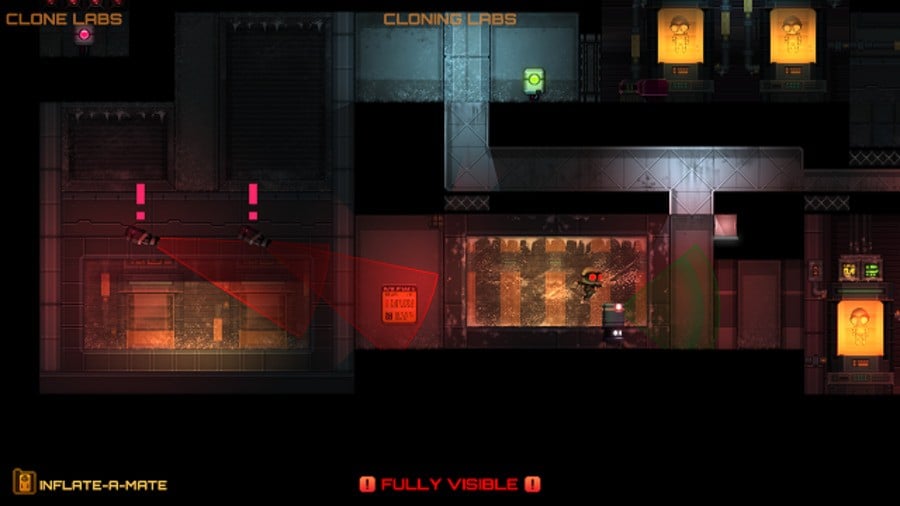
How Indies Can Help Themselves
Independent developers, even if Microsoft makes sweeping changes to the Xbox Store, that doesn't mean that you can rest on your laurels. You shouldn't expect them to do your PR work for you. The sheer number of websites for independent developers that don't contain the most basic information (if they exist at all) is absolutely astounding. Of the sites that do exist, a shocking number of them don't contain a section for the press to do something as simple as download a screenshot for an article. Some don't even have contact information on them! How do I get in contact with you to interview you about your new game – generating you what is essentially free PR for something that you're trying to sell – if you don't so much as have an email address on display?
In the case of the currently AWOL title that I mentioned earlier that wasn't supposed to be launching on Xbox One but now apparently is, the developer's site hasn't been updated in TWO YEARS. Their last tweet was three months ago. The team handling the Xbox One port - we only found out about them after checking the credits of the final game after installing it - haven't tweeted in five months, and nothing has been posted to their Facebook page for a year. It's almost as if they're desparately trying to stop people from finding out about their game.
Sorting Out The Basics
Indies, the first thing you need is a website. Websites are not expensive for things like this, despite all the tiny ones that have ridiculous little PayPal buttons on them that beg their users to "donate to keep us online!"
A domain name will run you $10 or less. Hosting can be had for $5 a month. You put Wordpress on the server (if it isn't there already) and you go and find a professional-looking template to drop your logo and information into. Done. All in, you're looking at a cost of between $15 and $100, depending on whether you get a free template or buy a more professional one. If you can afford a totally custom design, go for it, but the information is what's important. It could just be plain text on a white background, but if there's a contact address, some blurb about the game, and a link to download a few screenshots, you will undoubtedly garner more coverage than if there's nothing at all.
You also need to actually update your site from time to time. Add new screenshots, publish trailers, and show off parts of your game. Give the press the chance to give gamers the chance to get interested in what you're trying to sell. Along the same lines, use your social media accounts correctly. If you have a Twitter account (free), use it. If you have a Facebook account (free), use it. How about YouTube (also free)? That's right…use it! Talk up your game, publish screenshots and trailers, and generally try to get the word out. When you know what your product's release date will be, post it to all of those social media accounts and your website. Let people know that your game is due to launch!
I know it's tough to do these things with a small team when you're trying to get your game finished, but you should always make time for basic PR. You only need to look around the various conversation platforms for five minutes to see that the majority of people don't buy every single game that's released. They aren't sitting there with spare money in their Microsoft account, waiting for something to come out. They weigh up the pros and cons of each game that's launching before making a decision about what they'll buy. Quite a lot of the time, they'll stick to that decision when it comes to putting the cash on the table. If they don't know a) when your game is being released or b) what your game is even about, they'll discount you from their decision-making process right off the bat.
A Note About Review Code
When it comes time to hand out review code, evaluate every code that you're sending out. You may think it looks great to have a 9/10 review from LaurasAwesomeXboxSite Dot Wordpress Dot Com or BigBrianOnTehYouChoobz but if they have no subscribers or no traffic, it's worth absolutely nothing. You may as well give the codes away in a competition. The amount of folks I see on the pre-launch game leaderboards who write or or run sites that only play host to a hundred or so visitors per month, is insane. In the meantime, I'm speaking to other site owners and YouTubers who have genuine subscriber counts and traffic, who can't even get a reply from the same company! "First come, first served" is not a method to work with, here. Make your investments work for you by putting in just the tiniest bit of groundwork. There are things you can do with promotional copies of games that will get you more bang for your buck than just doling them out to anyone who asks.
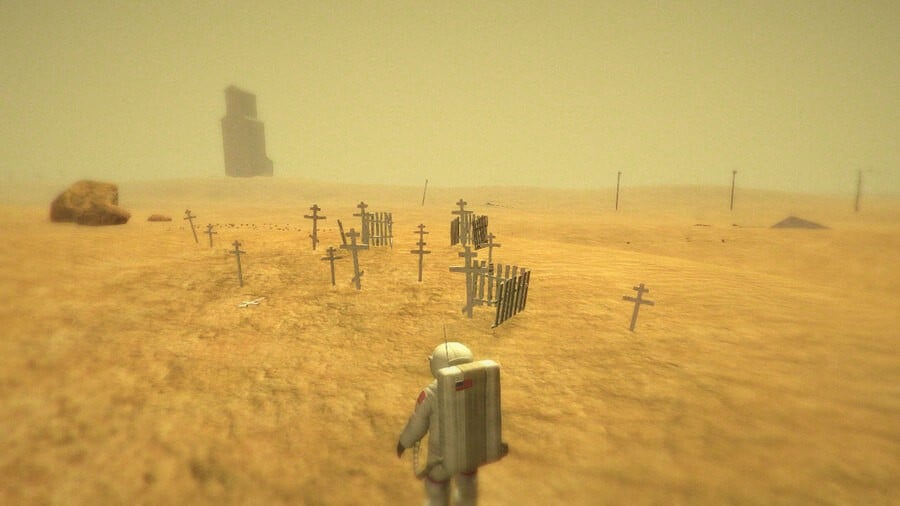
In Conclusion
The way things are going, we're going to reach a point where the Xbox Game Store is truly saturated with hundreds, if not thousands, of titles with most people only being aware of a very small handful of them. Generally, the titles they're aware of will also be available to purchase at their local game store or supermarket anyway. As it stands, we're kind of keeping track of what's going on in the ID@Xbox scene...just. But with dozens of indie games on the release schedule and likely dozens more set to be announced at E3, the way the platform holder and companies involved are setting out their relative stalls just isn't going to work.
Things need to change.





Comments 10
Good read. I'm amazed at how dysfunctional things are, on both sides. Hopefully MS can clarify the release schedule and indies can start having some real PR, it all sounds absolutely horrible to deal with.
Why did MS ditch the Arcade anyway? Everyone loved it, why fix what isn't broken?
I don't know why, but I'm not really bothered/concerned by this.
Very good points. I can't understand why the Indie games don't have their own store area. There are a lot of areas where the Xbox One seems to be a backward step from the 360. Unfortunately, as well put in this article, there are an awful lot of quality titles that are being overlooked by millions.
Out of interest, how does the PlayStation store manage their Indie titles?
The Xbox 360 store broke things down into 3 sections - Games on Demand, Arcade and Indie. Often though you never knew when the 'indie' games were released and often had no press coverage either. In some magazines, you may get a section at the back, picking a few titles as the best of the bunch. It was also rare that you got a review of the 'Arcade' titles unless they had something special about them or were published by one of the big houses like Ubisoft, EA etc.
Coming here from OXM, I don't know how this site dealt with releases that were not regarded as AAA, but OXM website rarely had reviews on Arcade releases and every now and again would have a 'feature' on the best indies. In fact until the XB1/PS4 era, Indie new releases never got a mention and Arcade releases often just a mention - rarely a full review - these sites just had a list of AAA and Arcade releases. Often I had to search for reviews of these around the internet when they were offered as GwG to find out more. I think that also had to do with the developers/publisher and the amount of money they had to promote these.
It does seem though that the difference between XB360 'indie' and 'Arcade' games is far more significant than the equivalent on XB1. 'Indie' now is generally at the Arcade level.
I would prefer to see the Store organised a bit better but I can also see how difficult that could be. They are all 'Games on Demand' effectively, not all of the cheaper games are 'indie' etc etc
I know I have said many times that 90+% of all 'Indie/Arcade' games have absolutely no interest/appeal and even those that do generally only a small interest and unlikely to be bought - may get downloaded IF they come to GwG - £15 for at most 8-10hrs of gaming that doesn't exactly grab me or £45 for 100's of hours, different options etc. That doesn't mean to say that I think they should be buried away though as I know many people will buy and enjoy them.
Maybe MS's idea was to have all games in one area so that people would see these 'Indie' games and actually look at what they offer whilst searching through. Maybe they thought that people wouldn't go to the Arcade/Indie section as often (or at all) and therefore wouldn't discover these.
It does seem though that most of the ID@Xbox games 'appear' suddenly and have little to no coverage. I do wonder if that's down to them though as those 'Arcade' equivalents have the big publisher backing to help promote them.
I usually buy indie games on either Wii u or PC. Wii u gives you club Nintendo credits for more games (though this is going to change). PC indie games have more sales. In contrast, there is nit much advantage of buying indie games on Xbox One.
Excellent article, and a great example of one of the large problems of the Xbox One. Microsoft spent years perfecting the Xbox 360, and created a platform interface that was incredibly fluid and user-friendly. All of that went out the window on the Xbox One. I understand the desire to create a whole new console, but why ditch what was working so very well? The interface is a convoluted mess at the moment, and every improvement they make takes them one step closer to where they are now with the 360.
I love both consoles, but Microsoft seems to be their own worst enemy at times.
Would be great if they could bring back some kind of XBLA section dedicated to the Indie titles and I do agree that many of the games just appear out of the blue with no fanfare. However even without a review the store does provide trailers (if there are any), screenshots and quite often a twitch stream which can all help you decide if a game is worth a punt although I do prefer to read a review or two if possible.
I check the store almost daily so I spot the new games pretty much as they appear but I guess many people will only look once or twice a month. In that scenario indie titles could easily come and go from the main screen and be missed completely which is where a dedicated, curated indie/XBLA section would help out.
In some countries, like here in Finland the indie situation is much better now since we never got the indie store on 360 at all.
I had no idea how much goes on just to get the word across! I agree that the Xbox One dashboard needs an overhaul. The recommeded 3 games taking up most of the screen always seems a waste, to me. Trying to locate and view the different games is so non-user-friendly. I actually prefer the buggy Playstation Store on my PS3, even IF it causes my system to crash.
Show Comments
Leave A Comment
Hold on there, you need to login to post a comment...